Description
Product Overview
The RD series stage pianos have been an absolute staple on performance stages all over the world for more than 30 years now. Next time you’re on YouTube watching live music performances pay close attention to the various keyboard set-ups and you’ll see for yourself just how prevalent Roland’s RD stage pianos truly are.
The RD-2000 is the flagship model of the RD line, and was built with professionals performing on the world’s biggest stages and in the most elite studios in mind. And navigating the user interface in real-time is a dream come true with 8 knobs with LED indicators and 9 sliders for fast, efficient control of effects.
With Roland’s trusted PHA-50 action, dual independent sound engines (both the V-Piano and SuperNATURAL engines), 1,100 sounds, and all kinds of effects and controllers (pitch bend wheel, modulators), Roland has thrown down the gauntlet for stage pianos once again.
Piano Action
Roland’s wood/plastic hybrid PHA50 action has been their top action for several years now. It’s been a fixture in their LX premium digital upright piano, as well as their GP series grand models. The top spot has now been usurped by Roland’s brand new “Hybrid Grand Keyboard” which is reserved for their top two LX models at this time, but make no mistake, the PHA-50 is still without question one of the top actions on the market.
It’s rare for any portable/stage piano to get an action of this quality, in fact, despite an extensive line of portable digital pianos and keyboards, only two portable digital pianos from Roland feature the PHA50 – the Roland FP-90X and the RD-2000. The rest of the FP line, along with the RD88 use the stripped down, plastic PHA4 action.
Given the inclusion of wood, the PHA50 feels a little bit heavier and closer to a real acoustic piano than the PHA4. Its durability is mythic at this point, with many musicians raving about how much abuse their RD-2000’s have endured while the PHA50 still manages to operate perfectly.
This is a versatile action for both the stage and studio and is sensitive enough to satisfy even advanced classical pianists.
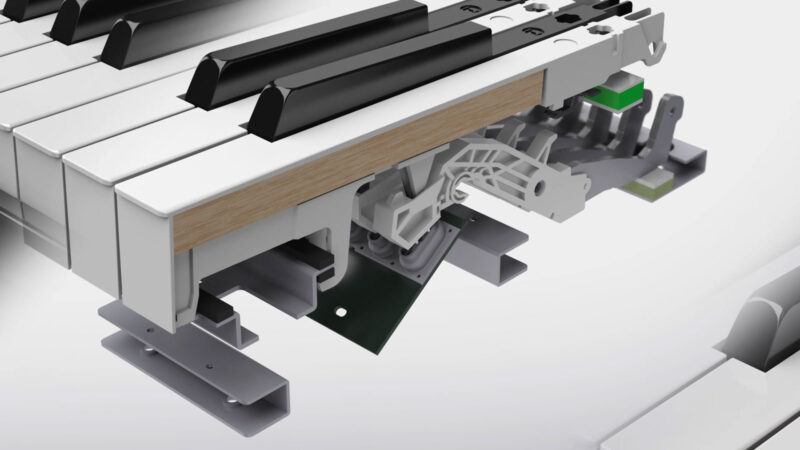
Piano Sound
As far as signal processing goes, the RD2000 is really tough to beat. Its got two independent sound engines, including Roland’s V-Piano Technology with unlimited polyphony, and their SuperNATURAL piano engine. You can also combine up to 8 internal patches together at once, which speaks to the comprehensive level of real-time control this instrument offers.
All of the onboard acoustic piano sounds are very good, but there are also expansion piano options that offer a deeper layer of complexity. It’s loaded with electric piano tones, with a great mix of modern sounds as well as faithful recreations of vintage e piano sounds as well.
As far as the organs are concerned, the Hammond B-3 patch is worthy of special mention as this is easily one of the most authentic recreations available in any modern digital piano. The 8 slider balls double as tone bars, you can set and save a host of preset configurations.
Getting past the normal piano sounds, there’s also a huge variety of other sounds, including synths, strings, choirs, pad, etc. for a total of 1,100 on-board tones.
4 Real-time effects processor are present as well to ensure musicians don’t get bogged down with complex menus during the heat of performance, not to mention on-board EQ, envelope control, reverbs, and amplifier simulation.
Connectivity
The RD2000 has everything you’d expect in a professional stage piano. There’s L/MONO, R ¼” main out, XLR main out, and ¼” sub out.
In terms of inputs, there’s a stereo mini line-in, 4 different pedal inputs, MIDI in and out, USB type A and B, stereo ¼” headphone jack, along with an AC in jack.
Notable Features
Where to begin? Given how feature-loaded this thing is, we could really start anywhere, however, we would like to highlight something seldom mentioned – just how darn durable this thing is!
Our director of sales here at Merriam Music, Stu Harrison, personally owns an RD-2000, and to say he’s put it through the ringer would be an understatement. He’s played his RD-2000 on over 500 gigs in all sorts of playing situations and he’s yet to experience any issues whatsoever. Stu’s owned many stage pianos over his many years as a professional musician, and he absolutely raves about the dependability and reliability of this instrument.
- Roland’s acclaimed SuperNATURAL Piano engine
- PHA-50 Standard 88-note keyboard with escapement and ivory-feel keytops
- Dual Sound Engines
- Easy-to-use Interface
- A broad selection of non-piano sounds, including strings, voices, organ, drums, and more
- Variety of Zone and Master effects including EQ’s, reverbs, compressor, and more
- Variety of controllers including
- MIDI Master Keyboard
- DAW Control
- USB-to-host port lets you connect with your computer
- Compatible with DP10 sustain pedal with half-damper control
Conclusions
Is the RD-2000 the top stage piano currently available? We know what we think, and we’d highly encourage you to try one in a piano showroom to see for yourself.
Roland RD2000 Owner’s Manual
- [English] RD-2000 Owner’s Manual
Roland RD2000 Related Resources
- Roland RD-2000 Digital Piano Review & Demo by Merriam Pianos
- Kawai MP11SE vs Roland RD-2000 Stage Piano Review – SuperNATURAL, Grand Feel, Virtual Technician
Specs
| KEYBOARD | Keyboard | PHA-50 Keyboard: Wood and Plastic Hybrid Structure, with Escapement and Ebony/Ivory Feel (88 keys) |
| SOUND | Sound Generator | 2x Independent Sound Engines Sound Engine1: V-Piano Technology Sound Engine2: SuperNATURAL SuperNATURAL Piano SuperNATURAL (E.Piano, Clav) Virtual Tone Wheel Organ PCM Sound Generator |
| Max. Polyphony | V-Piano Technology Sound Engine: Full Polyphony SuperNATURAL Sound Engine: 128 voices |
|
| Parts | 16 parts (Max 8 parts are used in the PROGRAM) | |
| Tones | 1,100 tones Over | |
| Program | 300 | |
| Scene | 100 | |
| Effects | Modulation FX: 4 systems, 62 types Tremolo/Amp Simulator: 4 systems, 6 types Reverb: 6 types Delay: 5 types Sympathetic Resonance (Only for SuperNATURAL Piano) 3-band Compressor 5-band Digital Equalizer |
|
| AUDIO FILE PLAYER | File Format | Audio Files (WAV format, 44.1 kHz, 16-bit linear) |
| RECORDER | File Format | Audio Files (WAV format, 44.1 kHz, 16-bit linear) |
| External Storage Device | USB flash drive (supports USB 2.0 Hi-Speed flash memory) | |
| OTHER | Rhythm Pattern | 200 patterns |
| Controllers | Slider x 9 (with illumination) Knobs x 8 (with illumination) Pitch Bend/Modulation lever Modulation Wheel x 2 |
|
| Display | Graphic LCD 256 x 80 dots | |
| Connectors | MAIN OUT (L/MONO, R) jacks: 1/4-inch phone type MAIN OUT (L, R) jacks: XLR type SUB OUT (L, R) jacks:1/4-inch phone type NPUT jack: Stereo miniature phone type Pedal (DAMPER, FC1, FC2, EXT) jacks: TRS phone type MIDI (IN, OUT1, THRU/OUT2) connectors USB (COMPUTER) port: USB type B USB (MEMORY) port: USB type A PHONES jack: Stereo 1/4 inch phone type AC In jack |
|
| Number of USB Audio Record/Playback Channels | Signal Processing: 24-bit Sampling Rate: 192 kHz, 96 kHz, 88.2 kHz, 48 kHz, 44.1 kHz Record: 2 channels Playback: 2 channels |
|
| Power Consumption | 23 W | |
| Accessories | Owner’s manual Power cord Damper pedal (capable of continuous detection) |
|
| Options | Keyboard stand: KS-G8B Piano pedal: RPU-3 Damper pedal: DP-10 Pedal switch: DP-2 Expression pedal: EV-5 USB Flash Memory |
|
| SIZE AND WEIGHT | Width | 1,412 mm 55-5/8 inches |
| Depth | 367 mm 14-1/2 inches |
|
| Height | 140 mm 5-9/16 inches |
|
| Weight | 21.7 kg 47 lbs 14 oz * Actual weight can vary slightly from that indicated due to the fact that wooden parts are involved. |
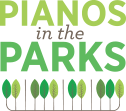
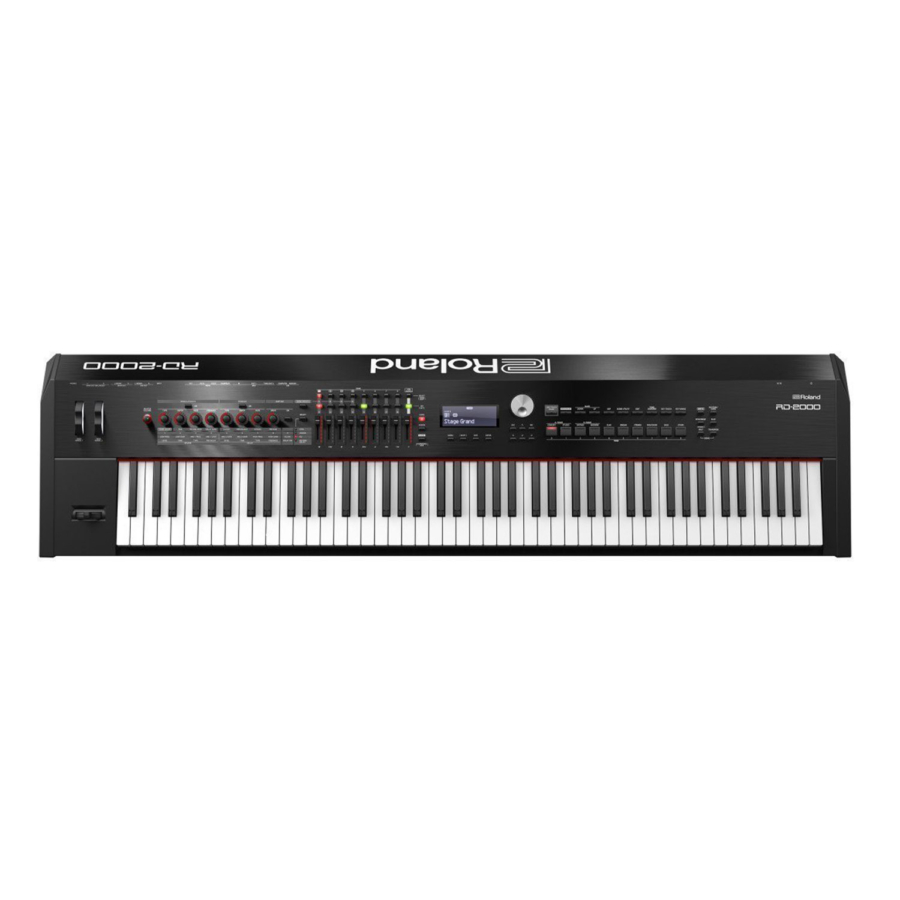
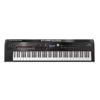
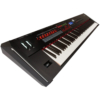
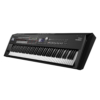
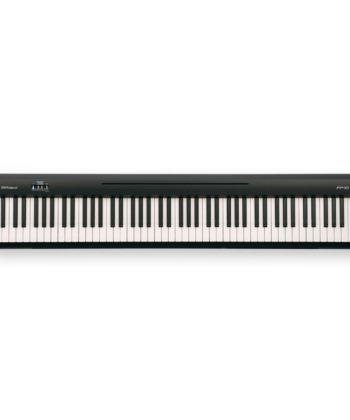
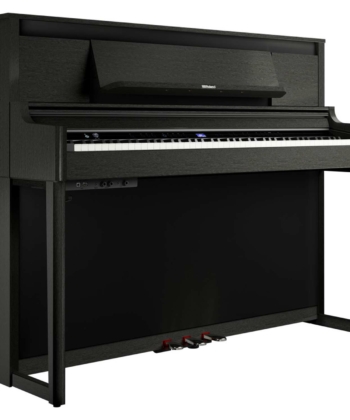
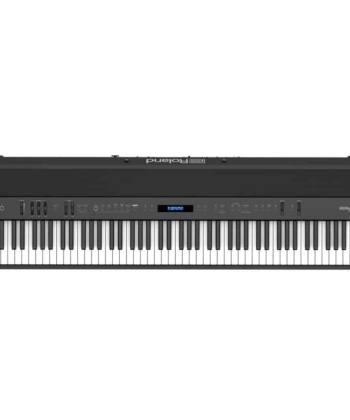
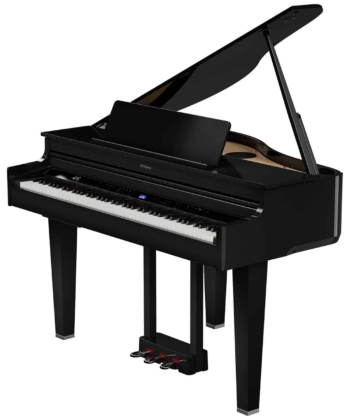


Reviews
There are no reviews yet.